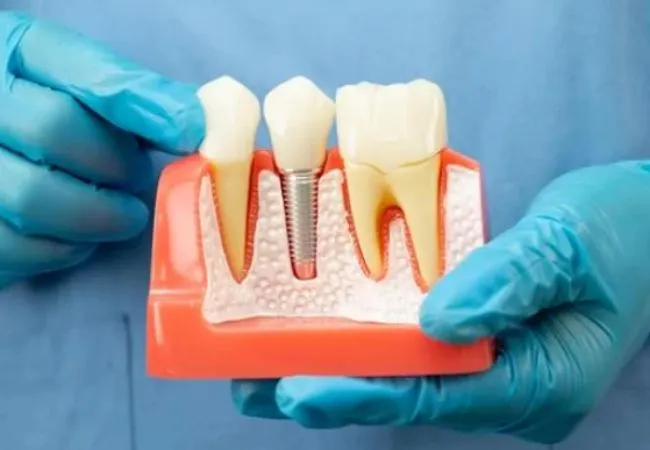If you’ve invested in dental implants, you may wonder: Can dental implants get cavities? This is a common question from patients who want to know how to care for their implants long-term. The good news is that dental implants are not natural teeth, which means they cannot develop cavities the same way natural teeth do. However, they still require proper care to avoid other oral health issues.
At Stadium Dental in Vancouver, we believe that understanding how implants work and how to care for them is key to protecting your smile.
What Are Dental Implants?
A dental implant is an artificial replacement for a missing tooth. It has three main parts:
- Implant post – A titanium screw placed in the jawbone.
- Abutment – A connector that attaches the crown to the post.
- Crown – A custom-made artificial tooth that looks and functions like a natural tooth.
Unlike natural teeth, the crown is usually made from porcelain or ceramic, which does not decay. This is why implants are often considered a permanent and reliable solution for tooth replacement.
Can Dental Implants Get Cavities?
The simple answer is no, dental implants cannot get cavities. Since they are made of artificial materials like titanium and porcelain, they don’t have the enamel or pulp that bacteria attack in natural teeth.
But that doesn’t mean implants are immune to problems. Instead of cavities, the biggest risks are gum disease, peri-implantitis (infection around the implant), or implant failure if proper oral care is neglected.
Why Oral Care Still Matters with Implants
Even though implants don’t decay, the tissues and bone surrounding them are natural. If these areas are not kept healthy, the implant may loosen or fail.
Key issues that can affect implants include:
- Gum disease- Bacteria can build up around the gums, leading to inflammation.
- Bone loss- Without healthy gums and bone, the implant post loses stability.
- Peri-implantitis- Similar to gum disease, this condition causes infection around the implant.
How to Care for Dental Implants
If you’re asking, “Can dental implants get cavities?” what you really need to know is how to keep them in excellent condition. Here are some care tips:
- Brush twice a day- Use a soft-bristled toothbrush and non-abrasive toothpaste.
- Floss daily- Special floss or interdental brushes work best around implants.
- Avoid hard foods- Chewing on ice or very hard items can damage the crown.
- Quit smoking- Smoking increases the risk of gum disease and implant failure.
- Regular check-ups: Visit your dentist in Vancouver for routine exams and cleanings.
Benefits of Dental Implants Beyond Cavity Resistance
One of the biggest advantages of implants is that they resist cavities, unlike natural teeth. But they also offer many other benefits:
- Natural look and feel
- Strong bite function
- Long-lasting with proper care
- Preserve jawbone structure
- Support overall oral health
With these features, dental implants can be one of the most reliable solutions for missing teeth.
Dental Implants in Vancouver
At Stadium Dental, we specialise in creating natural-looking smiles with durable dental implants. Our team will help you understand every aspect of the treatment, from placement to long-term care. While your implant crown won’t ever get a cavity, we guide you on how to protect your gums and jawbone so your new smile lasts for decades.
Conclusion
So, can dental implants get cavities? The answer is no, but that doesn’t mean they are maintenance-free. Implants need proper care to protect the gums and bone that support them. By having good oral hygiene and regular dental visits, you can enjoy a strong, cavity-free smile for years to come.
If you are considering having dental implants in Vancouver, Stadium Dental is here to help. Book your consultation today and take the first step toward a healthier, more confident smile.
